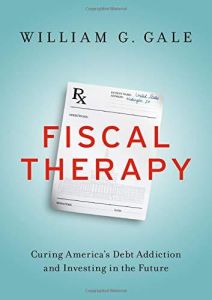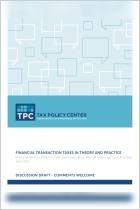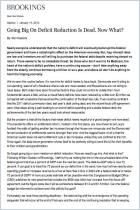Join getAbstract to access the summary!

Join getAbstract to access the summary!
William G. Gale
Fiscal Therapy
Curing America's Debt Addiction and Investing in the Future
Oxford UP, 2019
What's inside?
US public debt is on track to reach unprecedented heights.
Recommendation
Even before the coronavirus blew up US spending, deep tax cuts and underfunded investments had stoked massive public debt, threatening America’s economic health. In this thought-provoking work, economist William G. Gale incisively explains how tax and budget policies cripple growth and prosperity. His grounded, broad-based proposal does not include radical new ideas or punitive measures; rather, he’s assembled solid concepts from a spectrum of political voices into a cohesive, workable whole. Gale’s guidance may be all the more necessary in a post-pandemic economy.
Summary
About the Author
William G. Gale is a senior fellow at the Brookings Institution and the co-director of the Tax Policy Center.




















Comment on this summary